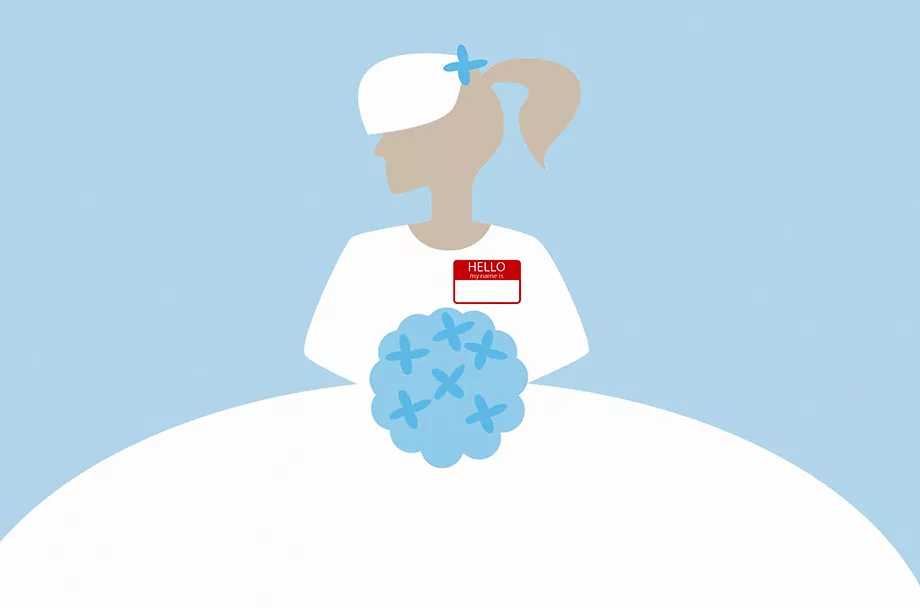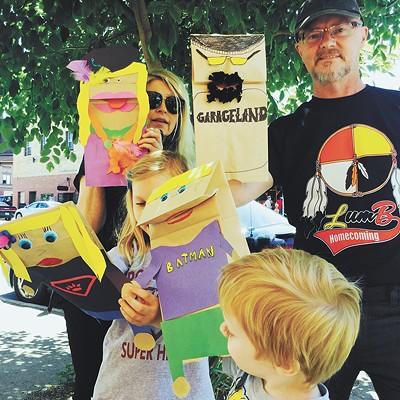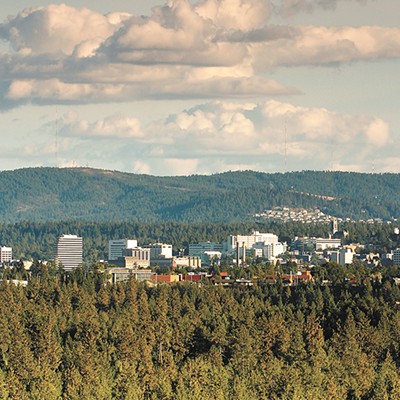In the past couple of months the questions about my last name have changed. For most of my life it's been: How do you pronounce it? (WAHN-a-nin.) And where's it from? (It's Finnish.) Now the question — from friends, colleagues, strangers — is one without a simple answer: Are you changing it?
If feminism of the past half-century has any solid, irrefutable victories, it may be the frequency with which this question is asked. A bride can now answer that question in any way she chooses. There are no assumptions. Anything goes. And even though the vast majority of women still take their husband's names, and even though only a fraction of couples choose something that bucks tradition entirely, it's at least one area where most people have accepted a woman's right to choose for herself.
Of course, there's no universally perfect option: Taking your husband's name means forgoing your family identity, and whatever reputation you may have earned with your own name. Keeping your maiden name can confuse acquaintances, offend in-laws or make things more complicated with children. Hyphenation is still an option, but it can be clunky and long. Using two names in any arrangement can quickly become cumbersome.
An increasing number of women are choosing to not really choose, instead using different names for different situations. A woman may use her maiden name on her business cards, her married name on her kids' permission slips and both on Facebook — or whatever. It may be confusing, or it may be a practical reflection of women's various roles. The fact is, people adapt.
Name traditions have changed much more slowly than the tradition of marriage itself. In the past, it was standard for young brides to have a whole host of rituals to reinforce their changed status. They changed their hairstyles, they quit their jobs, they moved out of their parents' home. In some cultures, young girls becoming wives destroyed their playthings to symbolize the end of their childhood.
Most traditions, examined honestly, reveal the past as a harsh and unjust world we should be glad to put behind us. That's the most compelling argument I've heard against women changing their names — that it's based in patriarchal systems of ownership that should have no place in the better world we always hope is coming. But that's also the strongest argument against marriage itself, and our society has chosen to transform marriage rather than abandon it. Love, equality and solidarity have not always been a part of the institution of marriage, but they are winning, and a shared name can be a powerful affirmation of these modern family values: We're a team. We're in this together.
For the past year or so, I've followed up the typical questions and pauses over my last name with a lighthearted remark: "Pretty soon I'll be marrying a Jones, and then everyone's life will be easier." Recently it hasn't gone over as well as it used to, and I think there may be something in the imminency — "In a month I'll be marrying a Jones... " — that causes even strangers to consider it something of a loss. You can't make polite small talk about last names with someone named Jones.
Jones is fifth on the list of most common surnames, according to the U.S. Census Bureau, behind Smith, Johnson, Williams and Brown. Waananen does not even make the cut for the top 151,671, which is all names with at least 100 people. On the question of identity, changing my name would not be an even trade. I would resent changing my name if I were forced to. But I'm not, and it turns out I'm pretty pleased that my dearest friend wants to share everything with me, forever, including his name.
So I am changing my name. I'm also keeping it. This is the last time my byline will appear this particular way in print, because by next week I'll be Lisa Waananen Jones. Yes, it's a compromise, and maybe not a perfect one. But I've heard that's what marriage is all about. ♦





















